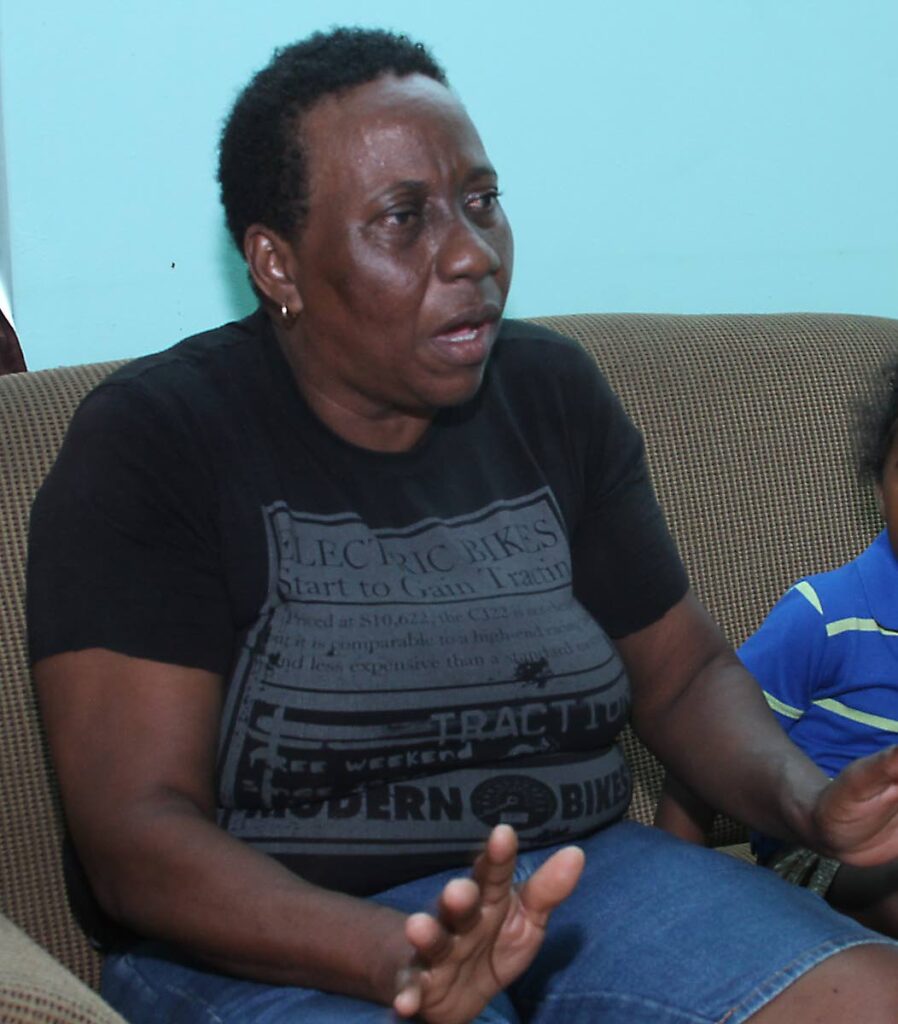AG won't appeal court ruling in Tot Lampkin case

AG Reginald Armour, SC, said he will not be appealing the judgment in the case of Tot Lampkin vs the AG.
He said the case was a wake-up call for the nation's protection mechanisms as it exposed serious shortcomings in state institutions and their response to domestic violence.
Speaking at a public consultation on domestic violence hosted by the Office of the Attorney General and Ministry of Legal Affairs at the Hyatt Regency, Port of Spain on Wednesday, Armour said he had thought long and hard about the decision.
“I have taken the decision as AG, given the significance of the Tot Lampkin decision and the positive benefit of having that decision to work with, and to alert us to what we need to do, I have decided I am not appealing that decision,” Armour said.
Tot Lampkin is the mother of Samantha Isaacs, a domestic abuse victim who was shot dead by her partner (who later killed himself) despite multiple reports to the police and requests for judicial protection over a four-year period.
On May 16, Justice Robin Mohammed held that her rights and that of her mother, Tot Lampkin, and Isaac’s young son, to the protection of the law and respect for private and family life, were infringed by the inaction of the police and the judiciary.
Armour said Isaac was being abused between 2013-2017.
He said amendments to the Domestic Violence Act in 2020 meant that police could investigate reports of domestic violence and arrest perpetrators without the input of the victim.
Attorney General's Office Criminal Justice Unit director Farzana Nazir-Mohammed said the Domestic Violence Act defines domestic violence as physical, psychological, emotional, sexual, or financial abuse committed by a respondent against a person in a domestic relationship.
She said that in 2023, out of 5,362 reported cases, 2,646 were of assault by beatings, representing 50 per cent of the total cases. Of the 2,646 case, only 26 individuals were charged, and of this 26, nine were convicted.
She said of the 5,362 reported cases, only 174 individuals were charged, with just 35 prosecutions or convictions.
National Security Minister Fitzgerald Hinds said the gender-based violence unit was established in 2020 and later merged with the child protection unit and the sexual offences unit to form the special victims department.
He said a training module on domestic violence is included in the induction training of every police officer at the police academy, aimed at changing attitudes towards domestic violence.
During a panel discussion on the role of key state agencies in domestic violence matters and responsibilities, the panellists noted the Tot Lampkin case had prompted them to do internal reviews in each of their agencies.
Law Association president Lynette Seebaran-Suite said an innovation in the 2020 amendments was the introduction of risk assessments, which can be requested during the application for a protection order or in the event of a breach of the order, offering a two-tier protection mechanism.
She noted currently it was only when a protection order is issued that a request could be made for an investigation into the lethality of the matter.
She called for support to be offered to DV victims outside of the issuance of a protection order, through collaboration between government and NGOs.
Senior Superintendent Vena Butler said the performance gaps identified in the 2017 scenario would not be so evident in a 2024 scenario.
“The judgment has prompted an internal review process. The management of the special victims department and of the police service are now looking holistically at our current practices and procedures to see where the gaps are and what we can do to fix them.
“We recognise the duty to investigate was present a long time ago and failed in this case. The leadership vision is that victims must treated with sensitivity and confidentiality. Policing requires us to be attentive and responsive. Every single officer must be able to respond.”
She said while the risk assessment tool has not been approved, it didn’t mean the police could not do some basic work to determine the level of risk a particular offender could pose. She said this would be the approach taken going forward.
“We realise the domestic violence register is critical work the police service has to do to be able to flag, reference, follow up and follow through with offenders. It is not currently a standalone tool.
“All the data as it relates to domestic violence reports are currently stored electronically on our records management system. My IT department is working to see how we can better utilise the information that is already accessible but be able to collate it and have it easily accessible to officers so when a report comes in the process of checking and flagging can be done.”
Master Marissa Ramdass said the judgment was a novel look at how the state’s obligations exist with respect to the need to take effective action to ensure the citizens of TT, particularly domestic violence victims and their families, have protections from violations of their human rights.
She said the judiciary understood it had to constantly be involved in evaluating the law to determine lessons to be learned and what could be improved.
“We set up a committee called the DV (domestic violence) process review and enhancement committee in 2020/2021. One of the things we looked at is that DV matters are looked at in several different courts in TT with different rules. We’re looking at how we can provide clarity so we are all operating procedurally in the same way.
“We recognise that a lot of people who come before us for DV matters are self-represented, they don’t have an attorney and sometimes won’t take one when offered. The existence and creation of specialised DV rules would be helpful to a self-represented person as well to give them the benefit of guidance.”
Ramdass said some perpetrators were willing to admit their guilt and undertake not to do it again, and have an order taken out against them. She said the law was unclear whether agreeing to have an order made against them meant they were consenting to electronic monitoring.
She also called for more shelters for both male and female victims of domestic violence.
Gender and Child Affairs Minister Ayanna Webster-Roy said her ministry is working on strengthening the DV registry and developing a robust case management system which would assist in coordinating responses from the different agencies and provide support to victims.
This is in addition to the various initiatives being done by her ministry, including the National Strategic Action Plan on gender-based violence and sexual violence 2023-2027, the Survivors Transformation and Empowerment Programme (STEP), the planned Men’s Bureau, the 800-SAVE hotline and partnership with TTPost to distribute material on DV.
Additional reporting by Tia Marie Lander.


Comments
"AG won't appeal court ruling in Tot Lampkin case"